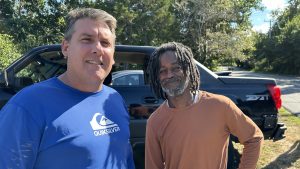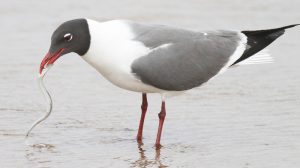Search results for: VIPREG2024 how to get 1xbet promo code Sao Tome and Principe
Cultivating the Future of Shellfish Farming
On a perfect mid-August afternoon, Todd Gelinas and Adrian Wallace motor their work skiff back to a small beach at the end of Tonset Road in Orleans. Newly-minted business partners, they are returning from tending oysters at Stony Island Farm …
Read MoreTeacher Workshop April 2002
Teacher Workshop April 2002 “Determining the Resistance of Marine Animals to Environmental Chemicals” Dr. Mark Hahn, WHOI, Biology Department Dr. Hahn’s major research interests include receptor-mediated mechanisms of toxicity, and means of adaptation and acquired resistance to exposure to persistent organic pollutants. This presentation centered on looking at toxins in the marine environment, particularly dioxins,…
Read MoreShellfish Resource Management in Massachusetts
Shellfish Resource Management in Massachusetts Helpful to educators and students. Leavitt, D.F. Focal Points, 3 pp., 2000 WHOI-G-00-003
Read MoreHuman Dimension of Rebounding Population of Seals and White Sharks on Cape Cod, MA
This collaborative project generated knowledge about the views and experiences of residents, tourists, and commercial fishers regarding seals and sharks on Cape Cod. Investigators used surveys to measure stakeholder beliefs, attitudes, and perceptions of seal/shark interactions, management, and conflict mitigation strategies. The knowledge gained from this survey will enable managers, policy makers, and non-governmental organizations…
Read MoreWHOI-R-98-003 Gonzalez-Gil, S. Detection and
WHOI-R-98-003 Gonzalez-Gil, S. Detection and
Read MoreHuman Dimension of Rebounding Population of Seals and White Sharks on Cape Cod, Massachusetts
This collaborative project generated knowledge about the views and experiences of residents, tourists, and commercial fishers regarding seals and sharks on Cape Cod. Investigators used surveys to measure stakeholder beliefs, attitudes, and perceptions of seal/shark interactions, management, and conflict mitigation strategies. The knowledge gained from this survey will enable managers, policy makers, and non-governmental organizations…
Read MoreThe Little Fish with a Big Impact
In the Gulf of Maine, there’s a little eel-like fish not much bigger than a large pencil, that buries itself in the sand in the summer and swims up and down in the water column in the spring and fall. It’s called a sand lance and it’s incredibly important to the ecosystem of the Gulf of Maine. If you like whale watching, this little fish is the biggest reason you might or might not see a whale:
Read MoreResuspension of Postlarval Soft-Shell Clams Mya arenaria through Disturbance by the Mud Snail Ilyanassa obsoleta
Resuspension of Postlarval Soft-Shell Clams Mya arenaria through Disturbance by the Mud Snail Ilyanassa obsoleta Dunn, R., L.S. Mullineaux, and S.W. Mills Marine Ecology Progress Series, Vol. 180, pp. 223-232, 1999 WHOI-R-99-010
Read More

